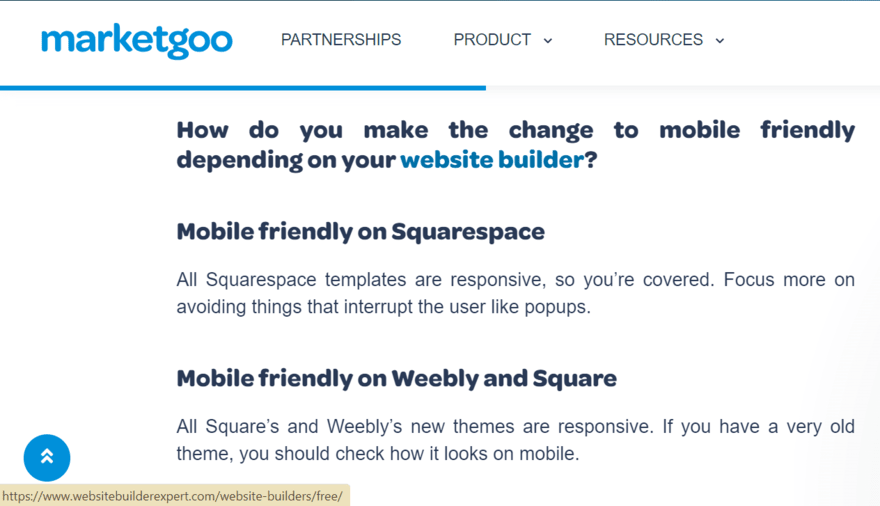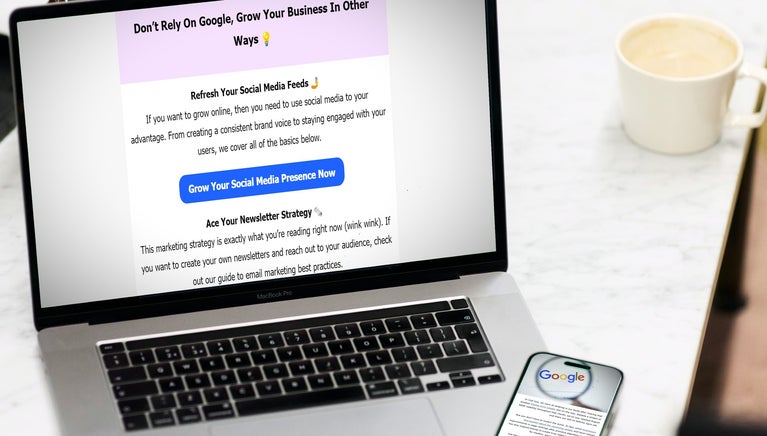Do Backlinks Add Value To Your Website? SEO Experts Weigh In
If you click to purchase a product or service based on our independent recommendations and impartial reviews, we may receive a commission. Learn more

Backlinks are links pointing to your site from another website, but why are they important and do they still matter? With regular changes to the search engine landscape and Google’s recent algorithm leak, there’s been a lot of debate about how valuable backlinks are and if websites should bother.
For now, it seems that backlinks still play a role in how a website performs and ranks. I reached out to SEO experts to hear what they had to say on the topic, and you can read on to learn how to generate valuable backlinks for your site in 2024.
What Are SEO Experts Saying About Backlinks?
The number one ranking page on Google will have 3.27 times more backlinks than the rest of the pages in the top 10, according to a study by Neil Patel. So, the data certainly points to the importance of backlinks, at least on the surface.
But what do SEO experts think? I spoke to five SEO professionals to find out:
Backlinks still matter for sure! Backlinks contribute to a site’s authority score from Google, so the more links and the better quality links you have, the better your site authority will be. It’s also important to note that links must be relevant to the site and page they are pointing to. When building links, create content and linkable assets worth linking to, like guides, and definitions/facts pages. I would avoid buying links at all costs as this is against Google’s guidelines and also will result in gaining very spammy links which could harm your site.

Backlinks do still matter! Gaining backlinks from reputable and relevant sources can boost your brand’s credibility and visibility amongst your target audience. High-quality backlinks can help increase your page’s rankings as well as its chances of standing out against competitor content.

External links (also called backlinks) still matter for SEO for many reasons. Firstly, they can improve your site’s authority, because when a reputable site links to your content, it signals to search engines that it’s valuable and trustworthy. This can then help improve your rankings in the SERPs, as high-quality backlinks are a strong indicator of the usefulness and popularity of a page.
Plus, backlinks can also help with traffic generation, as they can generate direct traffic to your site. If users click on a link from another site and land on your page, it could lead to increased visibility, engagement, and potential conversions.

Backlinks are essential references from other sites that show Google your content is trustworthy and relevant to a specific niche or topic. They matter (and will for the foreseeable future) because they prove authenticity. As Google sharpens its focus on user experience, getting high-quality links from reputable and relevant sites is becoming increasingly important. These days when it comes to backlinks, quality trumps quantity.

So, do backlinks still matter? The answer from the experts seems to be a resounding yes! Backlinks are still important – but only if you do it right.
How To Get Valuable Backlinks for Your Site
Valuable backlinks signal to Google and other search engines that your website is authoritative and respected by others. It’s like a nod of recognition or a stamp of approval from one site to another.

When building an effective link-building strategy, consider the following factors:
- Focus on quality over high volume – this applies to both links and content!
- Review your competition – identify opportunities and see which sources are worth targeting by analyzing the backlinks of competitors
- Source backlinks from local websites – Google values local SEO, so links from other countries or regions won’t be as valuable
- Make sure it’s relevant – informative and shareable content attracts backlinks, but you don’t want to target spammy or unrelated websites
- Outreach to promote your content – build a network and create connections with people within your industry or niche to secure backlinks
- Work for other sites – offer to create or write content for another business website to promote your site
Building links shouldn’t be your sole focus when building a brand online or growing a website’s reach. Mordy Oberstein, Head of SEO Brand at Wix, spoke with Moz and encouraged people to focus on nurturing their site’s “digital light” by exploring all engagement channels. This could mean tapping into social media or generating a newsletter strategy.
To support another site’s backlink strategy by adding external links to your site, consider this advice from Caitlin Hathaway, a Content Strategist at MVF:
Linking to high-quality external sources shows that your content is well-researched and backed by credible sources. They can provide additional context, citations, and supplementary information from reliable third-party sources. This allows readers to further explore topics of interest or verify the accuracy of the information presented.
External links basically serve as ‘endorsements’, and signal to both users and search engines that you think the linked source is reliable and credible. When externally linking, prioritize sources that are credible, authoritative, and directly relevant to the topic at hand. This approach will help to maintain the integrity of your content.

To build an effective backlinks strategy, learn what SEO is, follow along with our SEO checklist, and grow your knowledge with our article on SEO basics.

Leave a comment